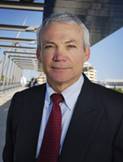 SBEnrc News | July 2020
I am pleased to confirm that all SBEnrc projects are running on schedule. Our early decisions around working digitally and remotely are bearing fruit, with minimal impact on the productivity of our industry research teams. We understand that everyone has unique circumstances and challenges and I hope you have been able to navigate the uncertainty to stay healthy, happy and productive at this time. Project Feature: Affordable Housing in a post-COVID-19 World
Launched earlier this year, the Centre’s Liveable Social and Affordable Higher Density Housing project considers liveability and accessibility in medium to high density urban housing and precincts. The research is investigating current leading practice and exploring future innovative options in the context of real-world case studies in Queensland and Western Australia. It aims to deliver a Liveability Framework for Medium to High Density Social and Affordable Housing, based on a forward-looking set of quality standards, considered against investment costs. The framework will:
This research is particularly relevant in the current context of managing in a global pandemic. The current Melbourne COVID-19 lockdown highlights the potential contribution to be made to improving the liveability of medium and higher density social and affordable housing. Our experiences of COVID-19 will forever impact the future strategy and implementation of affordable housing initiatives. Our lead researchers on this project are highly respected industry research experts. Project Leader Dr Judy Kraatz is on the Queensland Ministerial Housing Council and Project Steering Group Chair, Sue Ash AO is Special Advisor Community Services advising the Western Australian Department of Premier and Cabinet during the COVID-19 epidemic. This industry-driven project and all other SBEnrc initiatives are helping shape a better world in housing, building and infrastructure delivery through this COVID pandemic. New Partnership to Lead Sustainable Procurement Project
We are pleased to announce the launch of our Sustainable Procurement project, which will be led by our latest research partner, Western Sydney University. The project will address the increasing community expectation to support sustainable products and practices through billions spent by government and industry in their commercial operations, and the associated difficulties in objectively assessing environmental and social sustainability of products and services. Led by Project Leader Professor Kerry London and Project Manager Associate Professor Yingbin Feng, this industry-driven research will develop a unified definition of sustainable procurement to help provide consistency in identifying products and services that genuinely support sustainable development goals, achieve the targeted outcomes, and concurrently represent value-for-money. It will also review whether sustainable procurement practices are providing real benefits to organisations.
Restoring Trust in High-Rise Construction
Our Queensland lead research partner Griffith University has recently been awarded a large Australian Research Council (ARC) Linkage funding package to investigate the role of building and construction professions in rebuilding trust in residential building construction in Australia. Led by Professor Charles Sampford, this significant industry-driven research will promote better understanding of how, in the wake of expensive and potentially life-threatening building defects, confidence can be restored in the construction of high-rise residential buildings as not only safe but well-designed, well-constructed, well-liked by their occupants, and capable of being well-maintained. This national project will consider the potential role of each profession individually, collectively, and in collaboration with trades, industry bodies, regulators and watchdogs in an effective building integrity system that is nationally-harmonised but state-based. Expected outcomes include practical recommendations for improved professional standards, a rigorous building integrity system, and a means for measuring change. Anticipated benefits include greater awareness by professions, trades and regulators of their role in in delivering the public goods of a trustworthy construction industry. The national project team will benefit from the significant expertise of former Western Australian Building Commissioner, Peter Gow, who will serve as the industry Chair of the Project Steering Group. CIB World Building Congress – 27-30 June 20
Our Victorian research partner, RMIT is hosting the CIB World Building Congress in 2022. As the leading international construction research and innovation conference, this triennial WBC event brings together leading research from 50 working commissions across all aspects of the built environment. This will be a fantastic opportunity for Australian industry professionals to meet with global research and industry leaders. The congress will profile cutting-edge industry research and case studies from around the world. Themed around the implications for the built environment in a post-COVID19 world – Building our Future: Informing practice to enhance the lives of current and future generations – the congress will provide a platform to explore how the construction industry might respond to insights gained through the global pandemic by creating more resilient buildings and infrastructure and how the built environment can better support health, well-being and economic recovery.
Multi-platform Information Sharing
The SBEnrc is constantly seeking more effective ways to connect and share research outcomes with our partners and broader industry audience. In recent times, digital platforms have taken on a much greater role in the way that everyone interacts, and our Centre is no exception. With the wrap-up of our previous round of research earlier in the year, we have released the resultant industry videos, highlighting the value of our applied research. You can link directly to each of the most recent project videos.
Visit the SBEnrc YouTube channel to view all our past work in short, bite-sized videos. Last month, Professor Peter Newman AO and Dr Charlie Hargroves presented a webinar as part of Engineers Australia’s Transport Australia Society industry dissemination program. Engineering Challenges for the City of the Future was a great success, with 310 online participants attending the presentation [free to EA members to view] which discussed their research findings about how new autonomous technology and smart systems technology are providing new opportunities for the cities of the future. As we move forward we envisage that our delivery of webinars for professional development and industry dissemination of our work will allow access to our national and global partnerships. We are continuing to seek out new ways to make our research outcomes more engaging and accessible.
Building and Construction Authority (BCA) International Built Environment Conference, 1-30 September 2020, Digital Webinars, virtual exhibitions and networking sessions CIB International Conference on Smart Built Environments 14–16 December 2020 CIB World Building Congress hosted by SBEnrc core member RMIT Melbourne, 27-30 June 2022, Melbourne, Australia From the CEOWe are now more than halfway through a year that brought the world challenges … and opportunities. What has become immediately evident is the responsibility of our industry to create a more adaptable and resilient built environment in the post-COVID-19 era. One of the most important ways we can influence this is to broaden and deepen our networks across industry, government, and research and better leverage our available funding for greater impact. Leveraging Research Funding It was fantastic to see the SmartCrete CRC awarded $21M of Australian Government funding under the Australian Cooperative Research Centre program earlier this year. This CRC’s research outcomes will provide the industry with a significant capability to improve the performance and prosperity of the sector through reduced cost of concrete construction, improved durability and sustainability. SBEnrc has taken a leadership role in this new CRC as a core partner, opening up a range of exciting opportunities to extend our Centre’s research reach. Our collaboration with SmartCrete partners will mutually strengthen industry research, leveraging the Australian Government’s welcome investment into the sector. As a key player in the SmartCrete CRC, we can drive our industry partner interests further through this targeted collaboration. Similar to the ARC Linkage funding mentioned above, this is another example of how we are diversifying our funding and innovation network base for the benefit of industry partners. A Fond Farewell It is with much gratitude and some sadness that we bid farewell to our Centre Manager, Lauren Gubbin, as she moves on to the next chapter in her career. Lauren has been an integral part of the Centre for 17 years, having joined us in the time of our preceding entity, the CRC for Construction Innovation. She played a vital role in relocating the Centre from Brisbane to Perth in 2013 and has continued to keep operations running smoothly from the opposite side of the country. Lauren has been an enormous asset to SBEnrc. Her dedication and commitment have been remarkable — hers will be big shoes to fill. I wish Lauren every success in her next adventure. I’d like to extend my best wishes to you, our extended SBEnrc family, and hope you are staying safe and healthy in these challenging times. I believe our future-focussed industry research will hold us in good stead for assisting the post-pandemic global recovery. Dr Keith Hampson, Chief Executive Officer
Sustainable Built Environment National Research Centre Curtin University, Perth, Western Australia Our challenge is to continue growing the value and impact of our applied research more deeply and broadly across Australia. The Sustainable Built Environment National Research Centre (SBEnrc) is acknowledged as an excellent example of a CRC that has graduated into an independent organisation delivering unique industry, government and research collaboration. |
|

Resources
Industry Research
Western Australia (Head Office)
Sustainable Built Environment National Research Centre (SBEnrc)
Humanities Building 209 – Curtin University,
Bentley WA 6102
Queensland
The University of Queensland,
St Lucia, Brisbane
QLD 4072
New South Wales
Western Sydney University
Kingswood Campus
Penrith, Western Sydney
NSW 2751
Victoria
RMIT University
124 La Trobe St
Melbourne VIC 3000

















